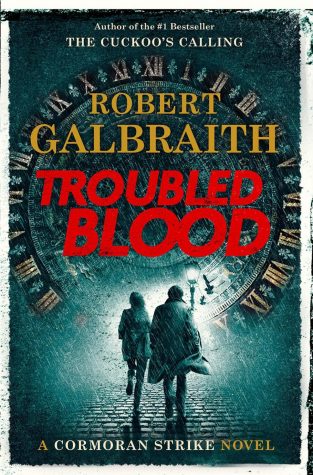J.K. Rowling publishes new crime novel demonizing trans people

Famed “Harry Potter” author J.K. Rowling wrote a new book, released Sept. 15th, and its antagonist is a serial killer whose most defining trait is… crossdressing.
Entitled “Troubled Blood,” it’s the fifth in a series called the “Comoran Strike” novels, which are published under the pseudonym Robert Galbraith. J.K. Rowling was discovered to be the true author back in mid-2013 after the release of the first in the series: “The Cuckoo’s Calling.” “Troubled Blood” sees the protagonist of the series, the titular Comoran Strike, take on a cold case regarding the murders of numerous people by a man dressing to appear as a typical woman, implied to be for the purposes of subterfuge.
Given J.K. Rowling’s history on Twitter with the subject of transgender rights, this atrocious book was to be expected, albeit not so soon. Rewinding back to only June 6th of this year, Rowling responded on Twitter to an opinion piece advocating for progressive post-COVID-19 changes for those who menstruate.
Rowling sarcastically feigned not knowing the word “woman,” stating: “I’m sure there used to be a word for these people… Wumben? Wimpund? Woomud?”
Later that same day, she responded to the torrent of backlash by doubling down with the “I have plenty of black friends, though” defense.
“I know and love trans people, but erasing the concept of sex removes the ability of many to meaningfully discuss their lives. It isn’t hate to speak the truth,” she wrote, proving the old adage about nothing being true before the word “but”, which, ironically, was echoed from a character written by fellow fantasy author George R.R. Martin.
Now, as someone who is not a huge fan of the fantasy genre, as Martin’s “A Song of Ice and Fire” series is the only one I’ve ever really gotten into, it’s tough to gauge the harm such comments might have on fans of Rowling’s seminal work, which of course is the wildly popular “Harry Potter” series. On one hand, Potterheads, as they call themselves, could compartmentalize the views of the books’ invisible narrator from the author’s tweets, or the works of Rowling from Galbraith. On the other hand, some of the biggest stars from the books’ movie adaptations are making such ostriching less of an easy option.
Harry Potter himself, actor Daniel Radcliffe, rebuked Rowling’s aforementioned tweet, stating: “Transgender women are women. Any statement to the contrary erases the identity and dignity of transgender people and goes against all advice given by professional health care associations who have far more expertise on this subject matter than either [Rowling] or I.” Co-stars Emma Watson, Rupert Grint, and the lead of “Fantastic Beasts and Where to Find Them,” the Harry Potter spin-off, Eddie Redmayne, expressed similar disagreement.
In sole opposition to the adverse reactions of so many of Rowling’s former associates is Robbie Coltrane, who played Hagrid. He is quoted as saying in the Radio Times: “I don’t think what she said was offensive really. I don’t know why, but there’s a whole Twitter generation of people who hang around waiting to be offended. They wouldn’t have won the war, would they?” I didn’t realize that the litmus test for moral values involved their capability to win world wars, but then again, what do I know?”
A pertinent question, though, is whether or not one can justify the purchase of intellectual properties owned by Rowling/Galbraith knowing that they are essentially supporting a currently living and damaging figure. Can the art, which, in the case of “Troubled Blood”, is controversial, be separated from the artist in a capitalist society? I say no. Although I cannot sympathize with long-time fans who are shattered by the vocalized, hurtful views of their favorite series’ creator, I can sympathize with those ostracized by her rhetoric. To de-platform Rowling is to lessen her poisonous influence, and so it’s our responsibility, however painful, to take part in doing just that.





